#mary robinette kowal
Explore tagged Tumblr posts
Text
Midnight Pals: Girls in Space
[space coven] Mary Robinette Kowal: listen up, boys! Kowal: I've got a story for you… the story of the lady astronaut! Kowal: that's right Kowal: a lady wants to be an astronaut Kowal: how about that?!
Kowal: while working for jim Henson productions, i was inspired by that great space explorer miss piggy to ask: what if women could go to space? Kowal: i would call it Kowal: GIRLS IN SPAAAAAAAAACE Kowal: with captain Lass Her-throb Kowal: first mate girly Kowal: and dr. Julian strangewoman
Robert Heinlein: what? girls in space? Heinlein: that's preposterous! Heinlein: everyone knows that space travel requires the cold calculating mind and stout body of a man Heinlein: a girl in space! don't make me laugh! Kowal: no it's true Kowal: girls can go to space
Heinlein: hyeah right Heinlein: back me up here, boys HG wells: I've never heard of a girl in space Jules Verne: yeah i mean c'mon Verne: what would a girl even do in space? Verne: have a period?
Wells: maybe talk about her feelings Verne: haha! Heinlein: "in space, no one can hear you nag" Verne: haha! Mary Shelley: sup fuckers? Wells: Verne: Heinlein:
Shelley: you lads talkin' bout something? Wells: Verne: Heinlein: Shelley: [picking teeth with switchblade] don't let me cramp your style Wells: verne: Heinlein:
Heinlein: shouldn't Heinlein: shouldn't you be over at midnight society? Shelley: why? something happening here i shouldn't know about? Heinlein: n Heinlein: n-no
Kowal: they were saying girls can't go to space Shelley: there's plenty of girls in space Shelley: what about the moon Heinlein: what about the moon Shelley: she's a lesbian Heinlein: WHAT!?!? NO!!! STOP! Heinlein: YOU'RE RUINING THE MOON!!
Kowal: so anyway an asteroid hits earth, causing cataclysmic climate change Kowal: that will kill all life on earth in a couple decades Kowal: so naturally there's a real problem that needs to be solved Kowal: and that problem is workplace sexism in the space agency
Kowal: sure, some of the cavemen at the space agency don't think a woman is good enough to go to space Kowal: but the lady astronaut is going to show Kowal: that she is a strong independent woman who is also intelligent Kowal: and no man is gonna keep her down!
Kowal: this girlboss is determined to be an inspiration to all the little girls back on earth Kowal: who can all imagine that they can grow up to be anything! Kowal: i mean, at least until that climate apocalypse Kowal: i guess that kind of puts a damper on it
Kowal: some men don't think she can be a lady astronaut because she has anxiety Shelley: does she stab them Kowal: Kowal: no she deals with her anxiety Shelley: she should have stabbed them Shelley: that's what i would've done
#midnight pals#the midnight society#midnight society#mary shelley#hg wells#jules verne#robert heinlein#mary robinette kowal
75 notes
·
View notes
Text




New Book Tuesday bounty 🤩
#new books#book#bookblr#bookish#mary robinette kowal#torbooks#tor#nightfire#sci fi and fantasy#science fiction#fantasy#horror#romance#tor publishing#tbr list#tbr#publication day#new release#paperback#hardcover#olivia waite#vi keeland#romantasy
40 notes
·
View notes
Text
Short stories that live rent-free in my head that never show up on my dash
Chac Mool by Carlos Fuentes - A man buys a chacmool (a pre-Columbian Mesoamerican sculpture associated with the Aztec god of rain) for his art collection, and it gradually comes to life, tormenting him.
Mountain Ways by Ursula K. LeGuin - In a world in which bisexual polyamorous marriage is the norm, a woman pretends to be a man to marry the woman she loves and deals with complicated relationships.
The Water That Falls on You from Nowhere by John Chu - In the near future, water falls from the sky whenever someone lies. This makes life difficult for Matt as he maneuvers the marriage question with his boyfriend and how best to come out to his Chinese immigrant parents.
The V*mpire by P H Lee - A horror story (with a hopeful ending) about transphobia, abuse, emotional manipulation, and being on tumblr in the 2010s.
The Feast by K.C. Mead-Brewer - A town struck by insatiable hunger tries to break the curse by sacrificing a young woman.
Fantasy for Eleven Fingers by Ben Fountain - A young piano prodigy with eleven fingers strains under the weight of parental expectations and the rising tide of antisemitism in early 1900s Europe.
Midnight Hour by Mary Robinette Kowal - A fairy tale in which a king and queen want to stop the curse on them from being broken.
33 notes
·
View notes
Text
instagram
MICE quotient: Milieu, Inquiry, Character, Event
Mary Robinette Kowal explains what the MICE quotient is and how it works for structuring a story by nesting the elements of it.
21 notes
·
View notes
Text
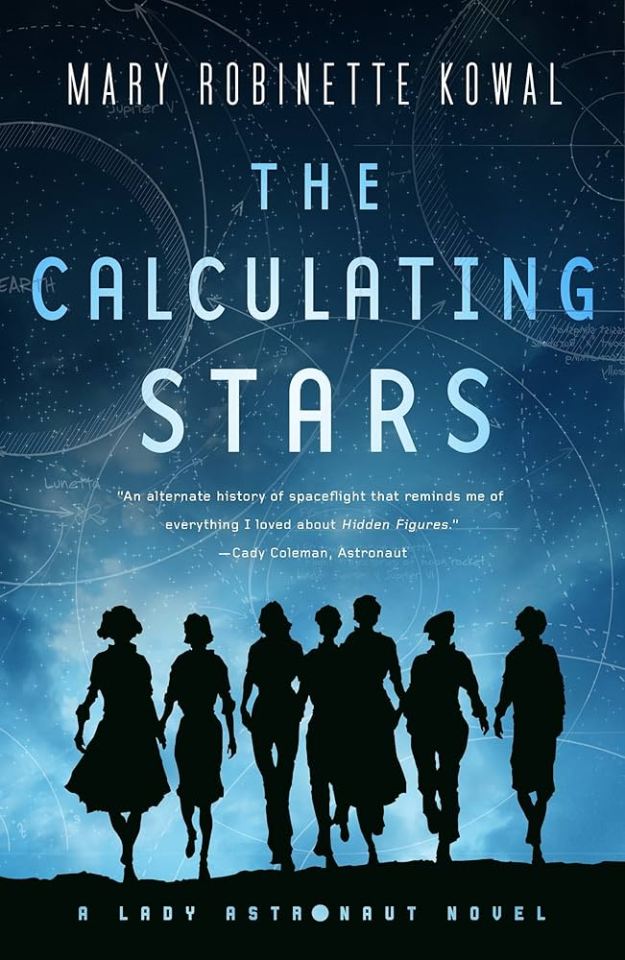
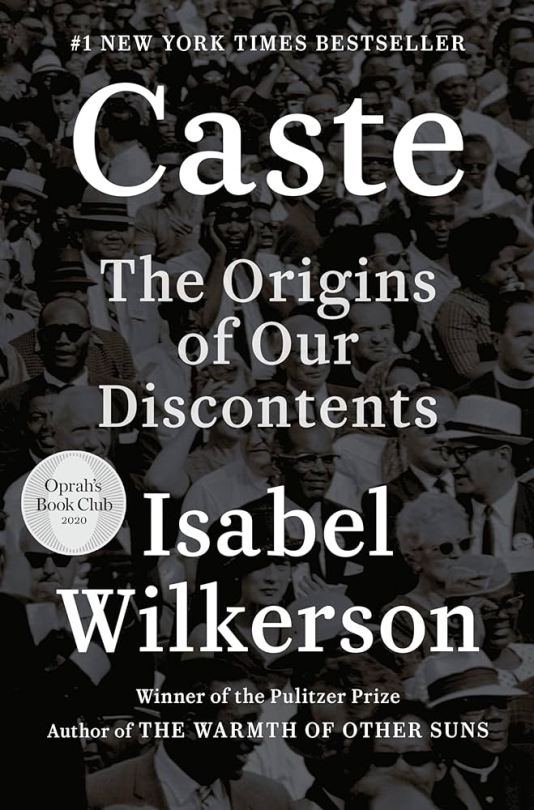
23 notes
·
View notes
Text
Dinkclump Linkdump

I'm on tour with my new novel The Bezzle! Catch me TONIGHT in LA (Saturday night, with Adam Conover), Seattle (Monday, with Neal Stephenson), then Portland, Phoenix and more!

Some Saturday mornings, I look at the week's blogging and realize I have a lot more links saved up than I managed to write about this week, and then I do a linkdump. There've been 14 of these, and this is number 15:
https://pluralistic.net/tag/linkdump/
Attentive readers will note that this isn't Saturday. You're right. But I'm on a book tour and every day is shatterday, because damn, it's grueling and I'm not the spry manchild who took Little Brother on the road in 2008 – I'm a 52 year old with two artificial hips. Hence: an out-of-cycle linkdump. Come see me on tour and marvel at my verticality!
https://pluralistic.net/2024/02/16/narrative-capitalism/#bezzle-tour
Best thing I read this week, hands down, was Ryan Broderick's Garbage Day piece, "AI search is a doomsday cult":
https://www.garbageday.email/p/ai-search-doomsday-cult
Broderick makes so many excellent points in this piece. First among them: AI search sucks, but that's OK, because no one is asking for AI search. This only got more true later in the week when everyone's favorite spicy autocomplete accidentally loaded the James Joyce module:
https://arstechnica.com/information-technology/2024/02/chatgpt-alarms-users-by-spitting-out-shakespearean-nonsense-and-rambling/
(As Matt Webb noted, Chatbots have slid rapidly from Star Trek (computers give you useful information in a timely fashion) to Douglas Adams (computers spout hostile, impenetrable nonsense at you):
https://interconnected.org/home/2024/02/21/adams
But beyond the unsuitability of AI for search results and beyond the public's yawning indifference to AI-infused search, Broderick makes a more important point: AI search is about summarizing web results so you don't have to click links and read the pages yourself.
If that's the future of the web, who the fuck is going to write those pages that the summarizer summarizes? What is the incentive, the business-model, the rational explanation for predicting a world in which millions of us go on writing web-pages, when the gatekeepers to the web have promised to rig the game so that no one will ever visit those pages, or read what we've written there, or even know it was us who wrote the underlying material the summarizer just summarized?
If we stop writing the web, AIs will have to summarize each other, forming an inhuman centipede of botshit-ingestion. This is bad news, because there's pretty solid mathematical evidence that training a bot on botshit makes it absolutely useless. Or, as the authors of the paper – including the eminent cryptographer Ross Anderson – put it, "using model-generated content in training causes irreversible defects":
https://arxiv.org/abs/2305.17493
This is the mathematical evidence for Jathan Sadowski's "Hapsburg AI," or, as the mathematicians call it, "The Curse of Recursion" (new band-name just dropped).

But if you really have your heart set on living in a ruined dystopia dominated by hostile artificial life-forms, have no fear. As Hamilton Nolan writes in "Radical Capital," a rogues gallery of worker-maiming corporations have asked a court to rule that the NLRB can't punish them for violating labor law:
https://www.hamiltonnolan.com/p/radical-capital
Trader Joe’s, Amazon, Starbucks and SpaceX have all made this argument to various courts. If they prevail, then there will be no one in charge of enforcing federal labor law. Yes, this will let these companies go on ruining their workers' lives, but more importantly, it will give carte blanche to every other employer in the land. At one end of this process is a boss who doesn't want to recognize a union – and at the other end are farmers dying of heat-stroke.
The right wing coalition that has put this demand before the court has all sorts of demands, from forced birth to (I kid you not), the end of recreational sex:
https://www.lawyersgunsmoneyblog.com/2024/02/getting-rid-of-birth-control-is-a-key-gop-agenda-item-for-the-second-trump-term
That coalition is backed by ultra-rich monopolists who want wreck the nation that their rank-and-file useful idiots want to wreck your body. These are the monopoly cheerleaders who gave us the abomination that is the Pharmacy Benefit Manager – a useless intermediary that gets to screw patients and pharmacists – and then let PBMs consolidate and merge with pharmacy monopolists.
One such inbred colossus is Change Healthcare, a giant PBM that is, in turn, a mere tendril of United Healthcare, which merged the company with Optum. The resulting system – held together with spit and wishful thinking – has access to the health records of a third of Americans and processes 15 billion prescriptions per day.
Or rather, it did process that amount – until the all-your-eggs-in-one-badly-maintained basket strategy failed on Wednesday, and Change's systems went down due to an unspecified "cybersecurity incident." In the short term, this meant that tens of millions of Americans who tried to refill their prescriptions were told to either pay cash or come back later (if you don't die first). That was the first shoe dropping. The second shoe is the medical records of a third of the country.
Don't worry, I'm sure those records are fine. After all, nothing says security like "merging several disparate legacy IT systems together while simultaneously laying off half your IT staff as surplus to requirements and an impediment to extracting a special dividend for the private equity owners who are, of course, widely recognized as the world's greatest information security practitioners."
Look, not everything is terrible. Some computers are actually getting better. Framework's user-serviceable, super-rugged, easy-to-repair, powerful laptops are the most exciting computers I've ever owned – or broken:
https://pluralistic.net/2022/11/13/graceful-failure/#frame
Now you can get one for $500!
https://frame.work/blog/first-framework-laptop-16-shipments-and-a-499-framework
And the next generation is turning our surprisingly well, despite all our worst efforts. My kid – now 16! – and I just launched our latest joint project, "The Sushi Chronicles," a small website recording our idiosyncratic scores for nearly every sushi restaurant in Burbank, Glendale, Studio City and North Hollywood:
https://sushichronicles.org/
This is the record of two years' worth of Daughter-Daddy sushi nights that started as a way to get my picky eater to try new things and has turned into the highlight of my week. If you're in the area and looking for a nice piece of fish, give it a spin (also, we belatedly realized that we've never reviewed our favorite place, Kuru Kuru in the CVS Plaza on North Hollywood Way – we'll be rectifying that soon).
And yes, we have a lavishly corrupt Supreme Court, but at least now everyone knows it. Glenn Haumann's even set up a Gofundme to raise money to bribe Clarence Thomas (now deleted, alas):
https://www.gofundme.com/f/pzhj4q-the-clarence-thomas-signing-bonus-fund-give-now
The funds are intended as a "signing bonus" in the event that Thomas takes up John Oliver on his offer of a $2.4m luxury RV and $1m/year for life if he'll resign from the court:
https://www.youtube.com/watch?v=GE-VJrdHMug
This is truly one of Oliver's greatest bits, showcasing his mastery over the increasingly vital art of turning abstruse technical issues into entertainment that negates the performative complexity used by today's greatest villains to hide their misdeeds behind a Shield of Boringness (h/t Dana Clare).
The Bezzle is my contribution to turning abstruse scams into a high-impact technothriller that pierces that Shield of Boringness. The key to this is to master exposition, ignoring the (vastly overrated) rule that one must "show, not tell." Good exposition is hard to do, but when it works, it's amazing (as anyone who's read Neal Stephenson's 1,600-word explanation of how to eat Cap'n Crunch cereal in Cryptonomicon can attest). I wrote about this for Mary Robinette Kowal's "My Favorite Bit" this week:
https://maryrobinettekowal.com/journal/my-favorite-bit/my-favorite-bit-cory-doctorow-talks-about-the-bezzle/
Of course, an undisputed master of this form is Adam Conover, whose Adam Ruins Everything show helped invent it. Adam is joining me on stage in LA tomorrow night at Vroman's at 5:30PM, to host me in a book-tour event for my novel The Bezzle:
https://www.vromansbookstore.com/Cory-Doctorow-discusses-The-Bezzle

If you'd like an essay-formatted version of this post to read or share, here's a link to it on pluralistic.net, my surveillance-free, ad-free, tracker-free blog:
https://pluralistic.net/2024/02/23/gazeteer/#out-of-cycle

Image: Peter Craven (modified) https://commons.wikimedia.org/wiki/File:Aggregate_output_%287637833962%29.jpg
CC BY 2.0 https://creativecommons.org/licenses/by/2.0/deed.en
#pluralistic#the bezzle#ryan broderick#mary robinette kowal#exposition#john oliver#margot robbie#adam conover#ai#ai search#change healthcare#centralization#pharma#pbms#pharmacy benefit managers#corruption#scotus#crowdfunding#clarence thomas
39 notes
·
View notes
Text
I love that the Lady Astronaut series takes place in the past because not only do we have characters talking about what they did during World War II, we now have polio on the moon.
10 notes
·
View notes
Text
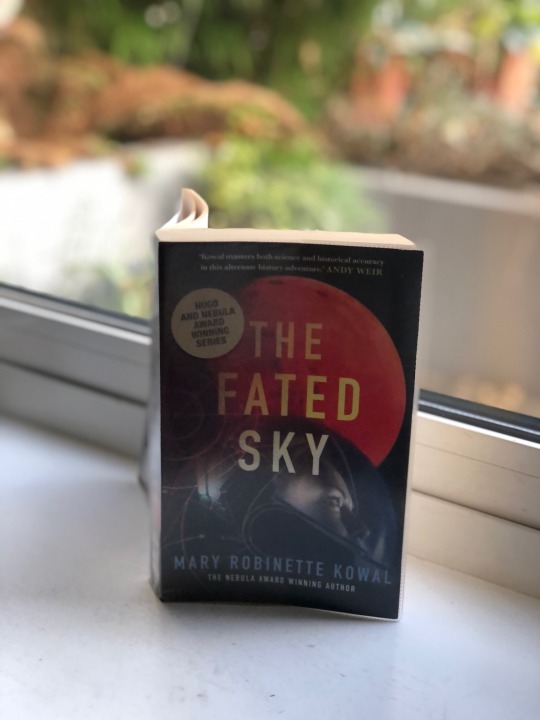
A Most /un/Welcome Return...
**spoilers**
This was originally titled in the opposite direction, reflecting the calm homecoming of returning to books by a reliably enjoyable writer.
But, I'm sorry, it's 10 days since the US election and while I'm going an excellent job of hiding from that reality, can I just take this moment to say: Seeeeeeeeeeeeeeeeeeeeeeeriously? *sad, sad face*
One of those moments when I treasure being served up X/ex-twitter in the form of people I in fact want to hear from (interrupted by a harmless story about mistaken identities and death metal concerts):

And it gives me fresh energy for the subject matter of MRK's Lady Astronaut books - which include two of my absolutely favourite things, aka an alternative history/timeline (so much fun! so much that could happen! yikes, and some of it actually does!) and SPACE.
These are GREAT books for conveying the message that what we do when we seemed to be facing impossible odds is - we carry on. We try. We do what we can. The darkness moves to engulf us and in whatever ways come to hand, small or large, we push back.
Specifically, in MRK's world, she's written a post-disaster narrative set among survivors of an extinction-level meteor strike. I don't think I'd even call this cosy catastrophe, though, because the world that's left behind, although it functions in a reasonably recognisable way for 1950s America, is pretty unmistakably dystopian. The consequences are many and multiple. But there's also gin, cake, s*x and friendship. And petty rivalries. Actual life, persisting regardless.
What I was *PLANNING* to say was that these are a great example of books I will happily read over and over again, that are partly/mostly in the terrain of things I'd write about myself, but are NOT the kind of book I'm aspiring to write. That's because they are i) hard science faithful in a way that feels frankly beyond my appetite and energy and ii) overtly identity-politics political, in ways I support but again don't think I could replicate
MRK does a superbly impressive job on conjuring the feeling of being in Real Space Race conditions - the checklists, the jargon, the reality of what it feels like for Real Astronauts and the things they really need to pay attention to. She's checking her material with Real Space People so full snaps for doing the homework. And doing it well.
Comes over to me as very 13 Minutes to the Moon in tone:
The other thing she puts right at the centre of the story is the question of race relations, both inside the space programme and between the space programme and Everyone Else, left behind.
The main terrorist opposition is effectively living out the logic of Whitey On the Moon and gets a sympathetic hearing from the main character, and a predictably unsympathetic response from the holders of power within the framework of the Lady Astronaut world:
youtube
That's on me (the lack of attention to the detail of the hard science and the lack of desire for a political fight) but there's maybe also something subtle and interesting - and perhaps difficult and perhaps self-defeating - about learning to recognise, in order to try to write, PRECISELY the story that fits your own personality and interests.
[I have a high level of confidence, though, that this is terrible, terrible advice for anyone who wants to have an actual published/publishing career, where the correct version of the advice needs to be - write that version of your own preferred story, but in such a way that it's likely to chime for other readers and - if you have the alchemical touch, which I certainly don't - shaped for the zeitgeist. I don't expect to be published commercially but I AM expecting myself to finish writing my Raynovia story and to complete it in a way that absolutely works as a testament to the kind of stories and writing *I want* to leave as - temporary - legacy in my corner of the internet / London.]
4 notes
·
View notes
Text

Drinks at the space bar anyone? Nothing is poisoned, I promise…
The Spare Man by Mary Robinette Kowal is an absolute blast. A murder mystery on a spaceship cruise, with a little Westie dog, a knitting lawyer on Earth-to-Mars delay, honeymooners, and cocktails!! There's nothing better, oh wait, there is. It's widely used non-gender-specific titles, casual queer rep, and a main character living with chronic pain, and that's all in this book too!
Every chapter starts with a recipe for a cocktail and ends with a sentence or two that had me saying "Just one more chapter" all night. I stuck with the classic martinis for this, for Tesla's sake. (The character, not the brand obvs). Though I'm sure all the bars on the cruise liner would have had a lot more decorations.
While I loved Kowal's Lady Astronaut series dearly, this jaunty space adventure has rocketed to my favourites list, and I will not apologise for any space-styled language that is a result. This deserves all the stars.
#fullibooked#the spare man#mary robinette kowal#books#murder mystery#space#science fiction#sci fi books#spaceship cruise#bookblr#booklr#books i read in 2022#back catalogue
2 notes
·
View notes
Text
Book Review 44 – The Spare Man by Mary Robinette Kowal
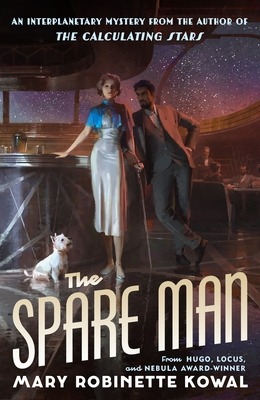
Alright, first full novel I’ve read entirely due to it getting a Hugo nomination. In retrospect that fact that there was absolutely no wait list for it at the library was perhaps a sign I should have paid attention to. I’m not sure it’s a bad book, exactly, but my god is it just chock full of little things that grated on me (which more or less tracks with my very vague memories of casually perusing The Calculating Stars when it first came out, so probably just a sign Kowal’s not for me, really.)
The story’s set in a fairly grounded space age future, on an ultra-lux cruise liner taking its passengers from Earth to Mars in speed and style. Tesla Crane, heiress, celebrity, and generally incredibly famous and unfathomably wealthy, has booked one of the nicest suites in the earth-gravity section of the ship under a false name to enjoy some anonymity on her much anticipated honeymoon cruise. Things of course take a drastic turn as a woman is murdered outside their sweet, and her spouse is framed for the crime. The shipboard security is obstructive and suspicious, bodies keep piling up, and it’s largely up to Tesla to solve the murder and clear his good name.
So first off – this is largely a style thing that grates on me far more than it should, and it probably effects my overall reading experience to an entirely unjustified degree, but – the standard etiquette in the story’s future is for everyone to use the gender neutral Mx. Using gendered terms like wife, husband, sir, m’am, or similar is also called out as being somewhere between archaic and offensively retrograde. Also, it is totally standard courtesy to list someone’s pronouns in any case where you’d their full name. In which case what is the point of taking so much care to be gender neutral of everything else. (In a sense this actually inspired worldbuilding, insofar as it’s exactly the sort of stupid language games high aristocracy or its equivalent tends to love, but the reading experience kind of grated).
The society’s generally very consciously progressive in a way that kind of calls attention to itself. It really wasn’t a surprise to see in the acknowledgement’s section that all the mentions of courtesy masks being a thing were edited in as covid happened. This is all mostly just background noise though, as far as narrative focus the only things that really occupy the story’s attention are its portrayal of disability and its bizarre class politics.
So, a key point of her backstory is that some years before the story, a lab disaster (during a demonstration of a personal assistance mech, which is actually some incredibly bitter dramatic irony I’m surprised the story doesn’t call any attention to?) killed six people and left Tesla with permanent spinal damage, chronic pain, and PTSD. Medical science doesn’t seem to have made many innovations on a cane or breathing exercises as far as mobility aids and PTSD treatment goes, but it does provide the absolutely incredible wish fulfillment device of a switch in your brain that lets you turn your pain sensitivity up or down at will. Tesla’s disability is a recurring thing throughout the book and generally the portrayal seemed fine to me? A couple conversations that bled into ‘giving the reader an important message’ territory, but only slightly and hardly the worst in the book.
The book’s attitude to class and wealth though, woof. Like, okay, the story is clearly a bit of a pastiche, a sanguine attitude to vast inequality and social hierarchy are necessary for the whole fantasy to work, but my god in that case please stop calling attention to it. The book so badly wants to simultaneously be progressive and have Tesla’s life be as maximally glamorous and exalted as possible that it gets twisted into this incredibly awkward spirals showing that she’s a good hyper-elite oligarch which really only call attention to the issue without doing anything to resolve it. Her internal monologue including some variation of the line ‘normally I hate just using money as a bludgeon to get what I want, but” happens a few too many times for it to not make un less likeable than an aristocrat who owns it.
Like, this is potentially uncharitable, but the book seems to take it as read that I find the idea of demanding to speak to a manager and having them grovel and apologize for how I’ve been disrespect far more alluring than I do? Not being that customer is a subject Tesla ruminates on at some length, and at the same time calling up her high priced lawyer and threatening to bury the whole cruise line in lawsuits while they rush to provide apology gifts is definitely portrayed as this thrilling power fantasy. It all left me actively rooting against her, at least a bit.
The actual mystery itself honestly wasn’t much to write home about – a bit confused, red herring introduced blatantly and too late, the obviously suspicious and personally unlikable character was the villain – but in a similar vein it did seem…telling, that the guy who’d been positioned as the unlikable asshole oligarch in opposition to Crane was secretly a murderous gold-digging imposter all along! Also, the fact that this was proven by a photo showing the oligarch to have been a dog guy, and the imposter being quite literally the only character in the entire book who didn’t adore Tesla’s emotional support dog. Like, c’mon.
Speaking of the dog – the book had a few recurring beats which I’m sure I’m supposed to have found funny or endearing but just overstayed their welcome with me several times over. The entire cast’s brains leaking out whenever they saw Tesla’s westie like it was some sort of platonic ideal of canine cuteness was one of them, along with like, Tesla and her spouse making out at a moment’s notice because a plot point meant that their encrypted tele-chat required skin-to-skin contact, and the book doubling as a cocktail guide. All things that if I’d liked the book I could have easily overlooked, but as is were just extra straws on the proverbial camel’s back.
Anyway, yeah, didn’t work for me.
34 notes
·
View notes
Text
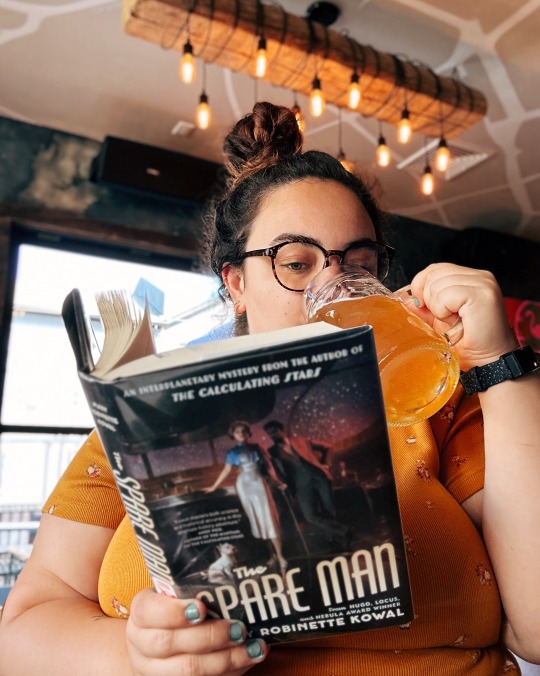
It was so lovely visiting Milwaukee last weekend. We have a special love for the beer Spotted Cow, which you can only buy in the state of Wisconsin! I spent a lovely afternoon drinking it with my Mary Robinette Kowal.
25 notes
·
View notes
Text
A Record of Violent Hallucinations Induced by Tattooed Slices of Dead Trees
2025 - January
Book 1 - The Fated Sky

God, I love this series.
I should probably pace myself a little, but when the book's this good, how?
#2025 book journal#book 1#mary robinette kowal#Lady Astronaut#The Fated Sky#5.0 ⭐#booklr#the storygraph
3 notes
·
View notes
Text
Mary Robinette Kowal's guide to manuscript critiques
Beta reading and giving critique is a skill. Mary Robinette Kowal made a guide for beta readers how they can help the author the most:
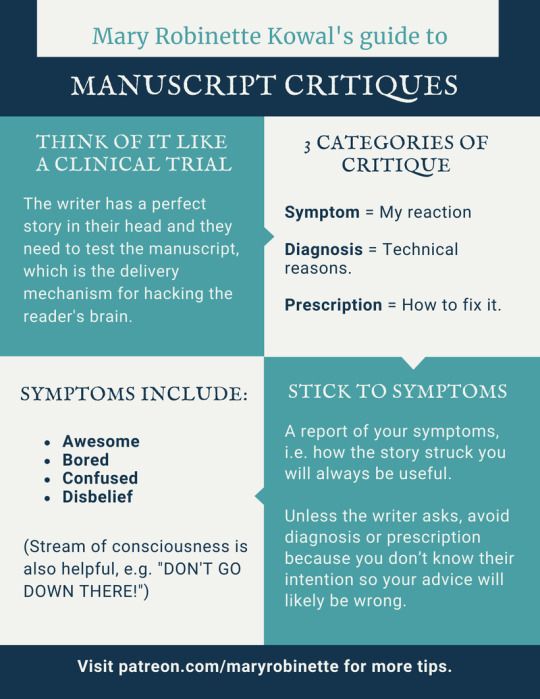
Text on image (also in the alt-text):
Think of it like a clinical trial. The writer has a perfect story in their head and they need to test the manuscript, which is the delivery mechanism for hacking the reader's brain.
3 Categories of Critique: Symptom = My reaction. Diagnosis = Technical reasons. Prescription = How to fix it.
Stick to symptoms. A report of your symptoms, i.e. how the story struck you will always be useful. Unless the writer asks, avoid diagnosis or prescription because you don't know their intention so your advice will likely be wrong.
Symptoms include:
Awesome
Bored
Confused
Disbelief
(Stream of consciousness is also helpful, e.g. "DON'T GO DOWN THERE!").
Visit patreon.com/maryrobinette for more tips.
39 notes
·
View notes
Text
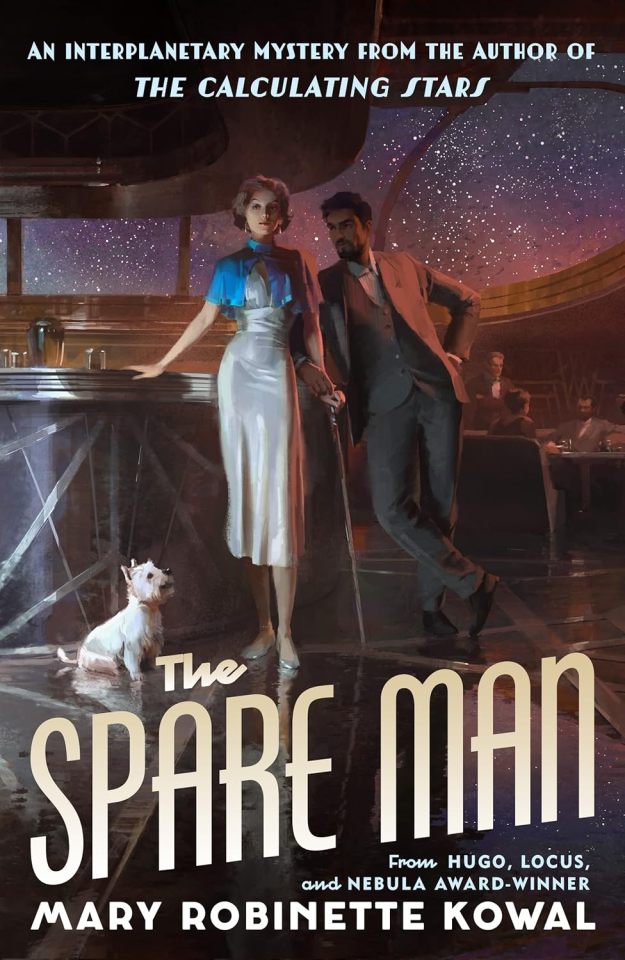
The Spare Man by Mary Robinette Kowal
Cover art by Jaime Jones
Tor, October 2022
Tesla Crane, a brilliant inventor and an heiress, is on her honeymoon on an interplanetary space liner, cruising between the Moon and Mars. She’s traveling incognito and is reveling in her anonymity. Then someone is murdered and the festering chowderheads who run security have the audacity to arrest her spouse. Armed with banter, martinis and her small service dog, Tesla is determined to solve the crime so that the newlyweds can get back to canoodling—and keep the real killer from striking again.
#book cover art#cover illustration#cover art#the spare man#spare man#mary robinette kowal#jaime jones#science fiction#scifi#sci fi#sci fi and fantasy#hard science fiction#hard sci fi#science fiction mystery#mystery#mystery thriller#murder mystery#scifiart
6 notes
·
View notes
Text

Episode 205: Lexicat, part 2: now with added Dog —
"in which I, Helen Zaltzman, throw language a bone.”
https://www.theallusionist.org/allusionist/lexicat2
2 notes
·
View notes
Text
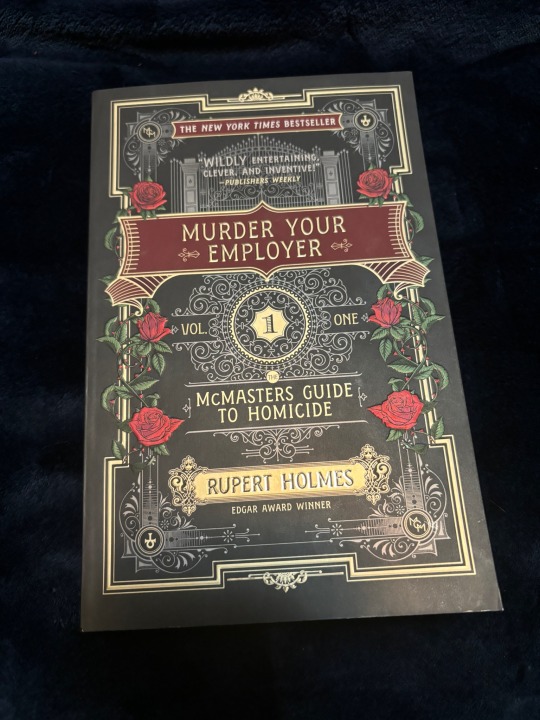
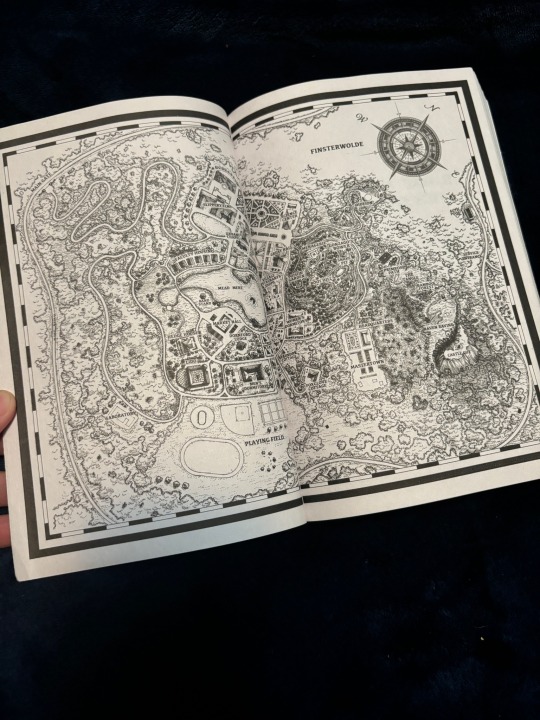
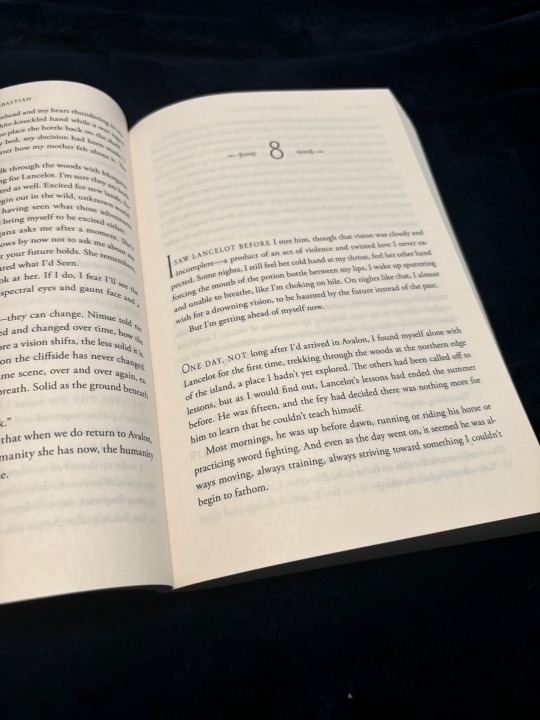
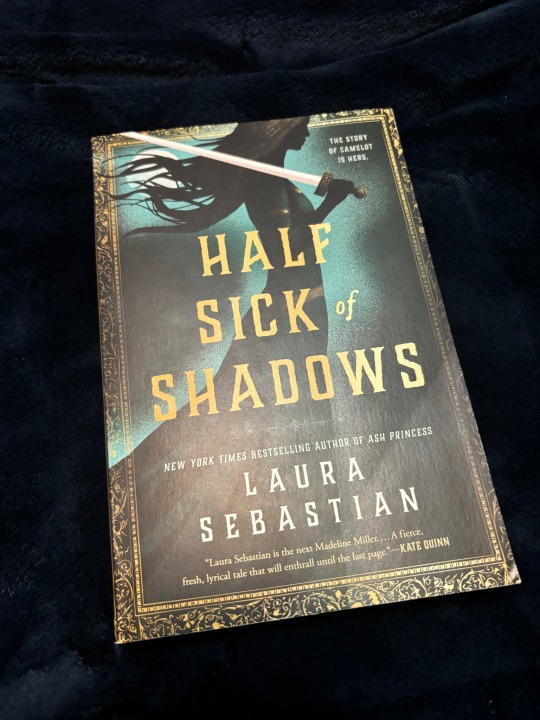
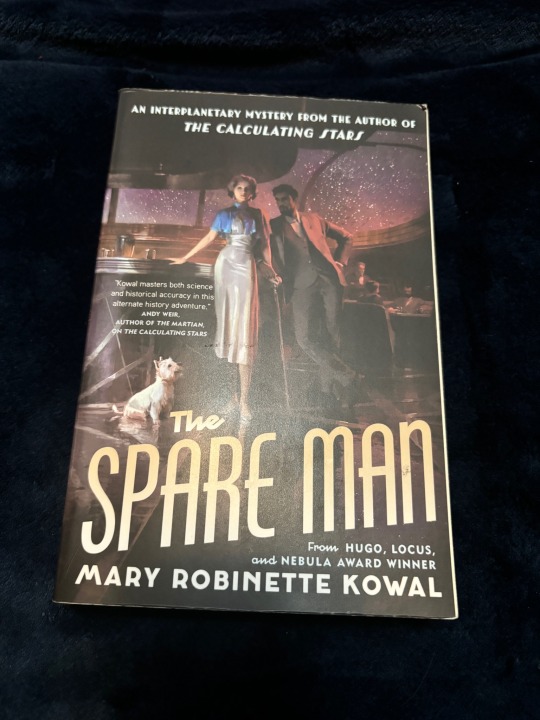
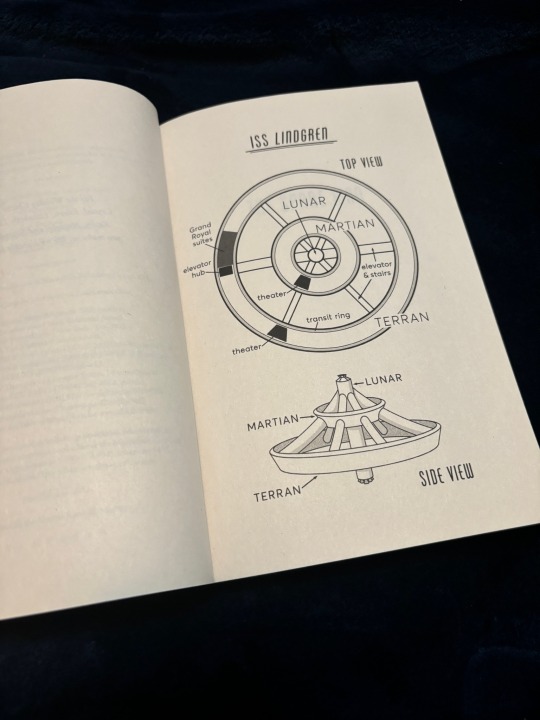
three books i loved in october
murder your employer by rupert holmes || mystery(?), academic setting
an innovative book that presents itself as a covert textbook from a mysterious murderous academy, telling the story of three characters who go through personal journeys to off their enemies.
half sick of shadows by laura sebastian || fantasy, camelot, minor romance
a feminist retelling of the arthurian myth centering around the prophetic lady of shallott, and a powerful story about friendship and destiny.
the spare man by mary robinette kowal || mystery, sci-fi, glitz & glamour
an heiress and her new spouse are framed for murder on their honeymoon trip and must find the real killer to avoid disaster. bonus points for including a fancy cocktail recipe at the top of every chapter.
#book review#writeblr#booklr#books and reading#mystery#fantasy#romantasy#scifi#murder your employer#rupert holmes#half sick of shadows#camelot#laura sebastian#the spare man#mary robinette kowal
4 notes
·
View notes